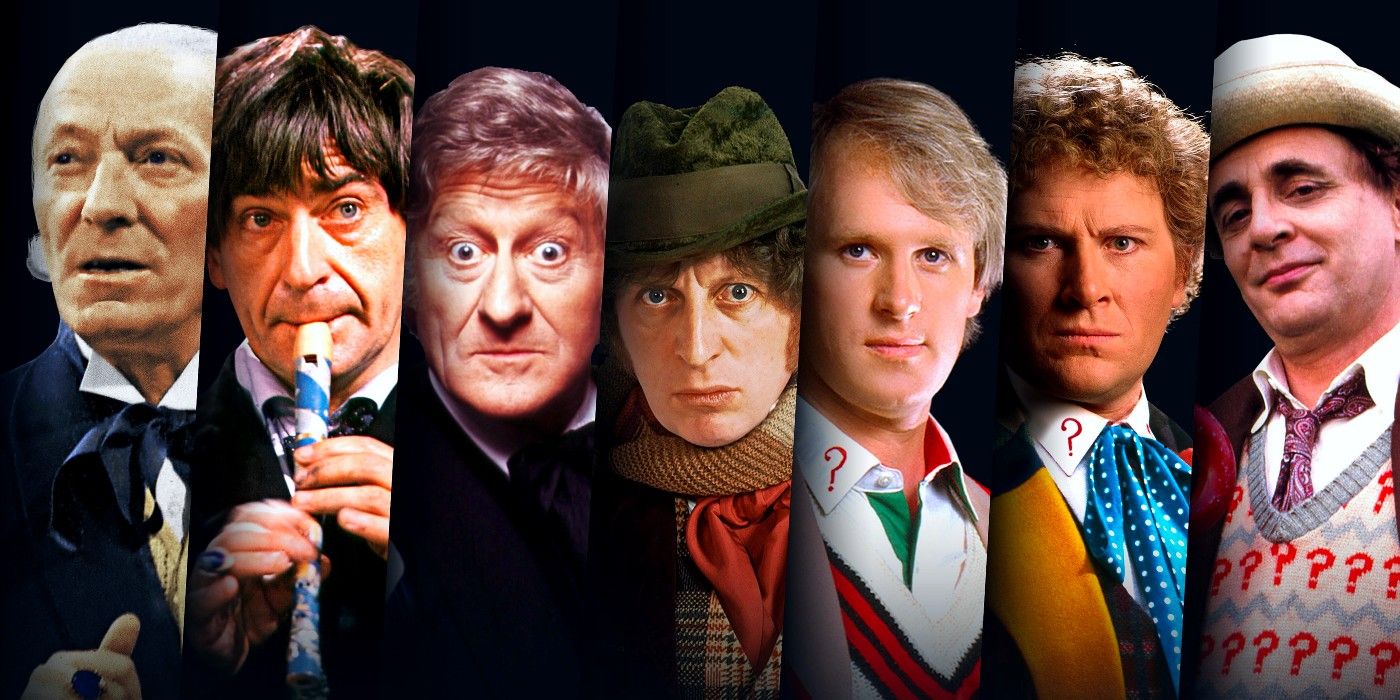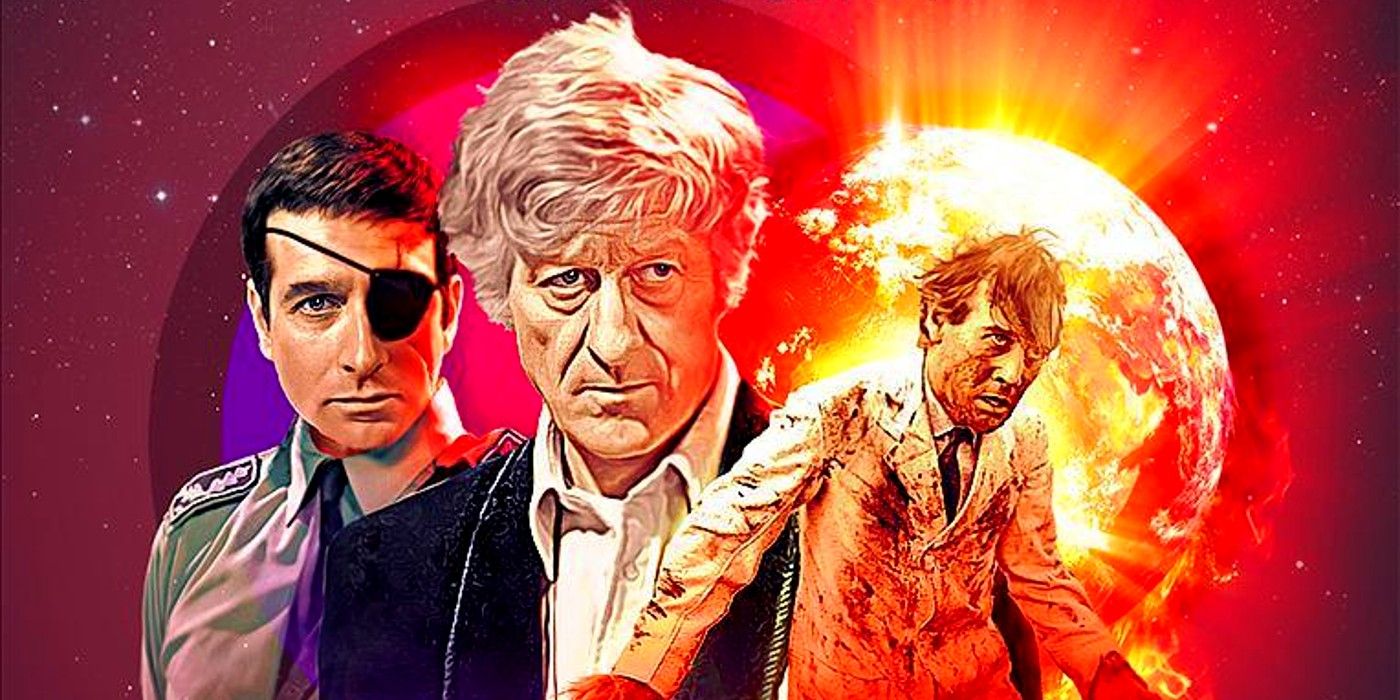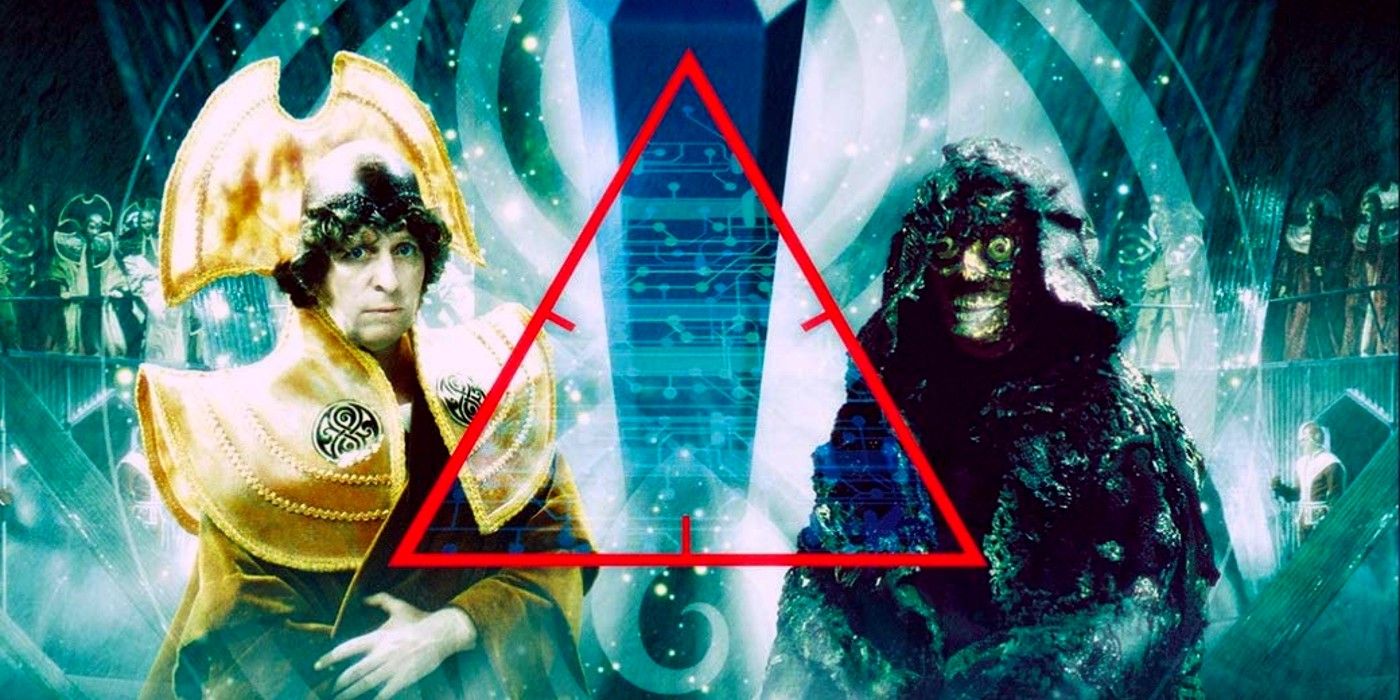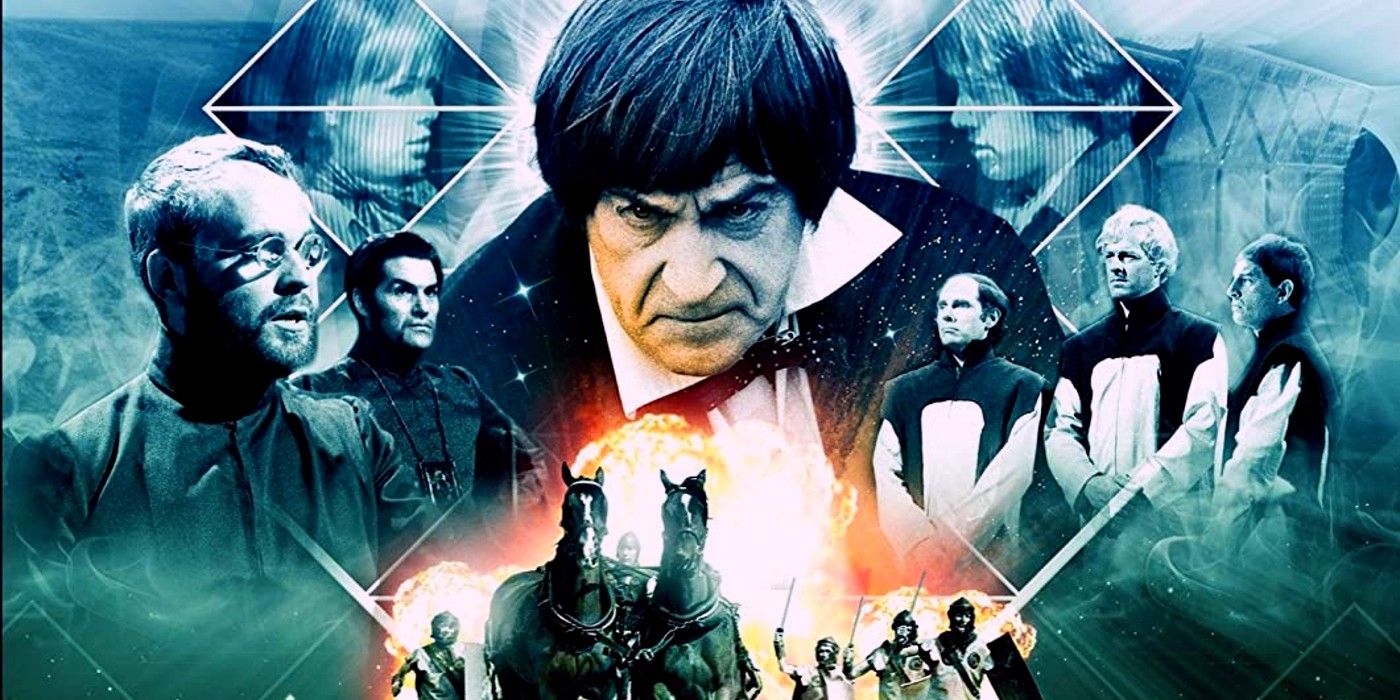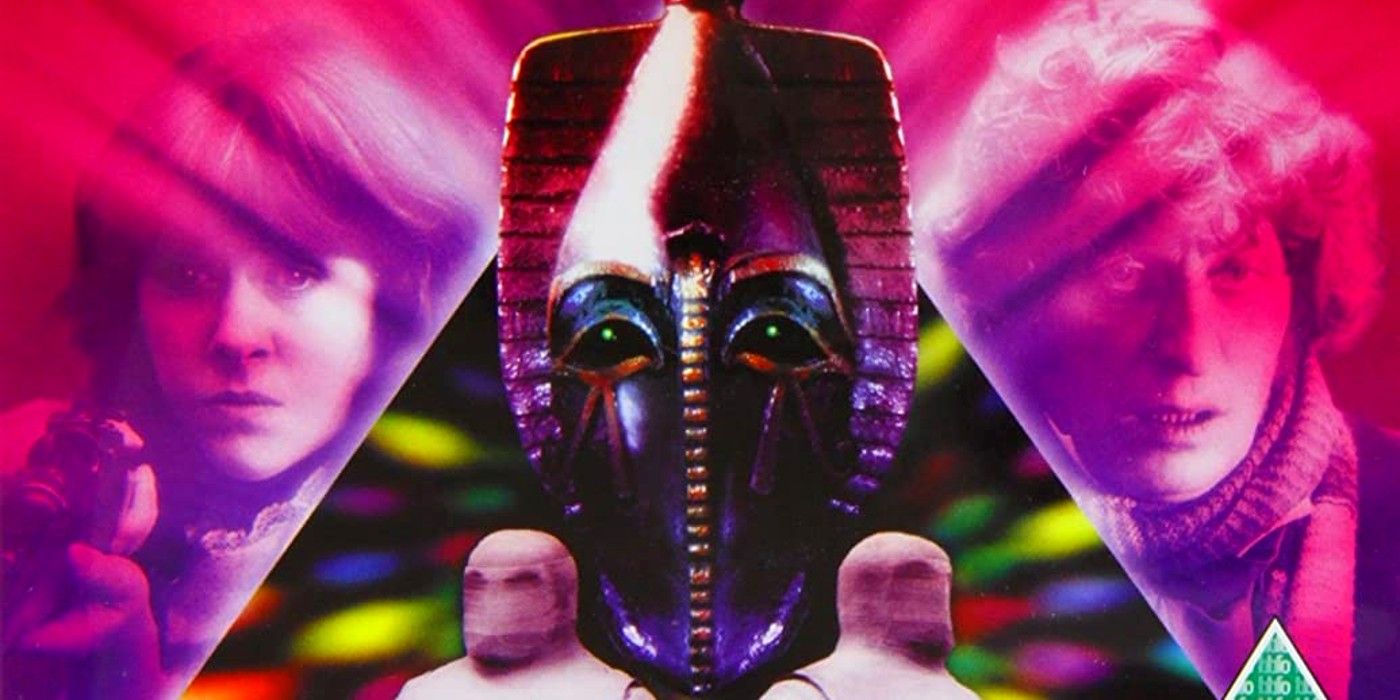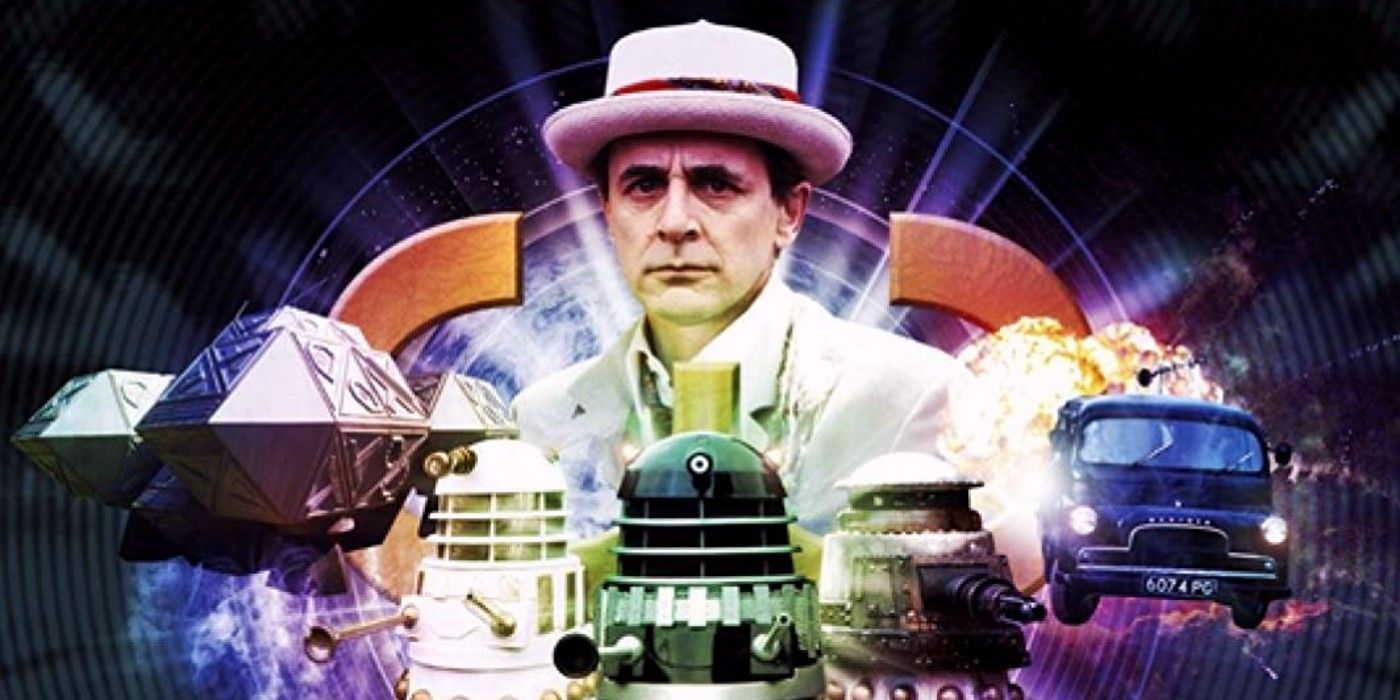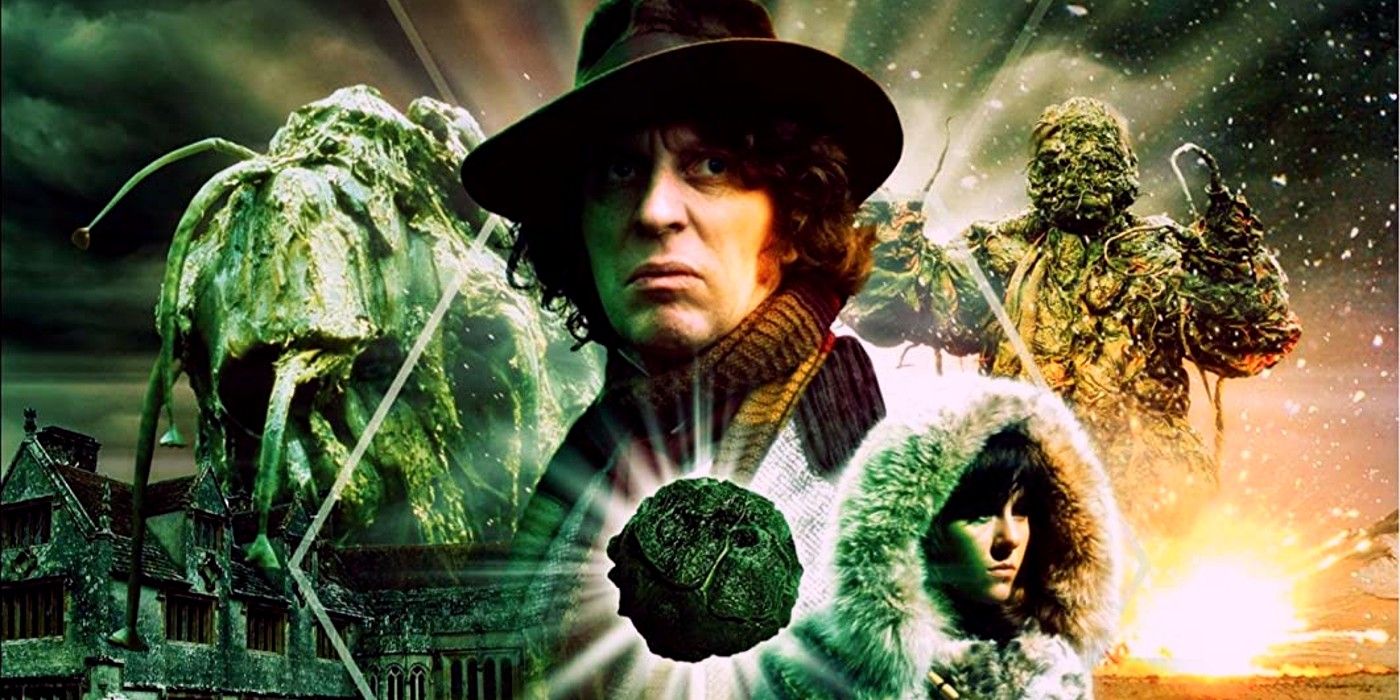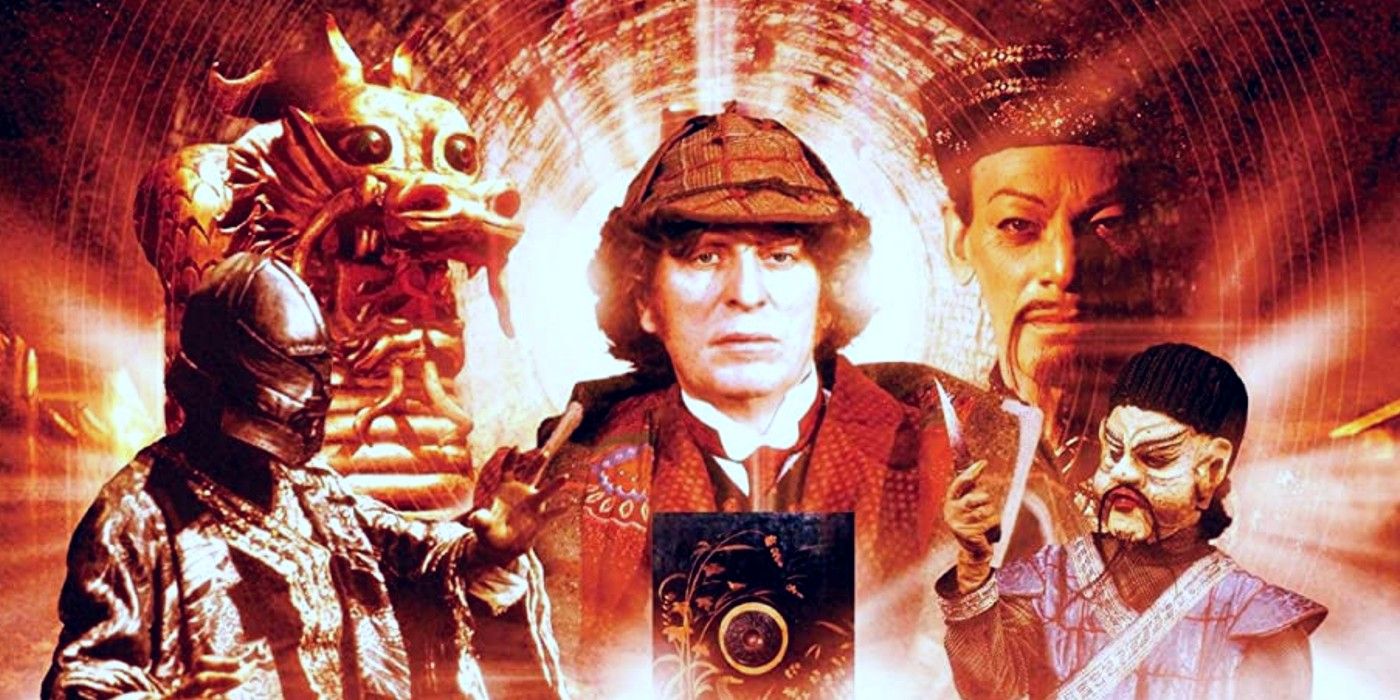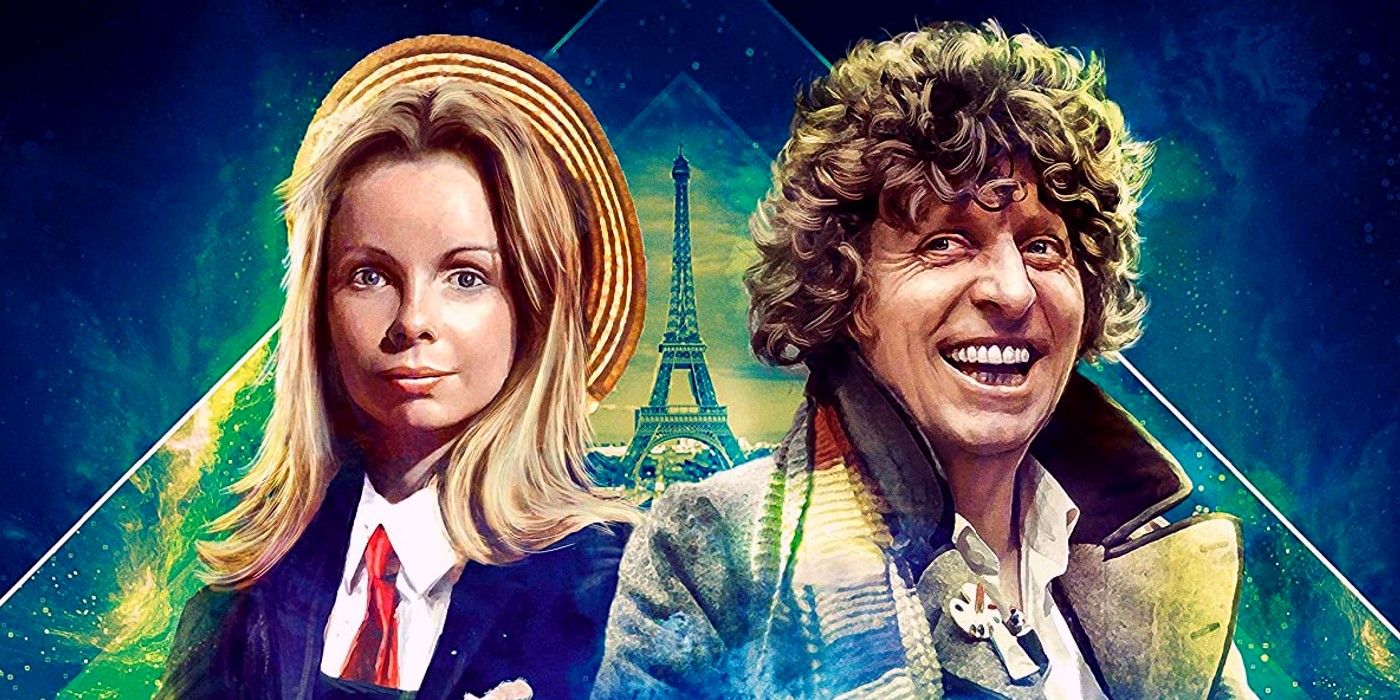Before its highly successful 2005 revival, Doctor Who already had a long list of iconic stories and characters expanding a little over twenty-five years. The original BBC series became a staple of British television, charming millions of viewers before its cancelation in the last 1980s.
Unlike the new series, which is full of standalone and two-part stories, the classic era of Doctor Who is filled with long serials that range from four to twelve episodes each. Many of these epic multi-parters have become 'essential viewing' for any fan of the series or science-fiction in general.
10 Inferno Sends The Doctor To A Dangerous Mirror Universe
|
Episodes: |
7 |
|
Director: |
Douglas Camfield, Barry Letts |
|
Writer: |
Don Houghton |
|
Producer: |
Barry Letts |
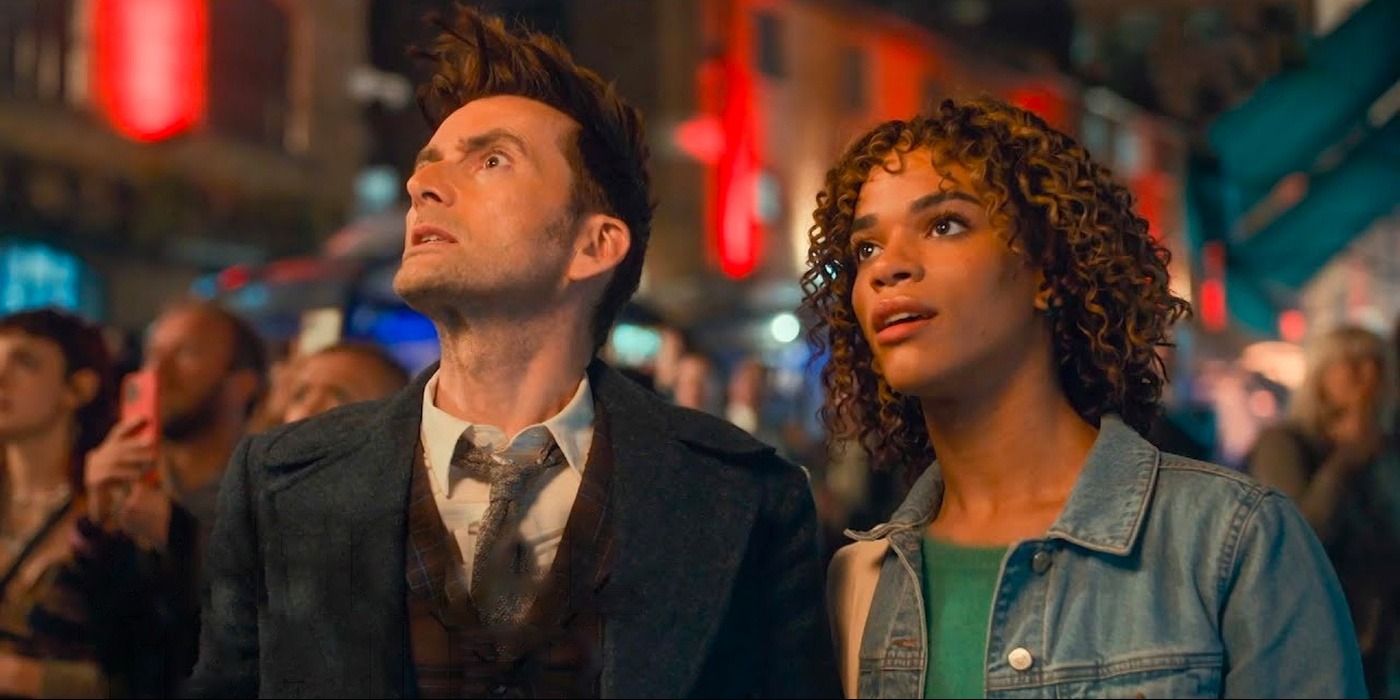
Doctor Who’s Rose Actor Praises Progressive Trans Story in 60th Anniversary Specials
Yasmin Finney discusses the importance of her Doctor Who character’s background.The Third Doctor steps into a deadly parallel universe in "Inferno," the final serial of the classic era's seventh season. The story follows Jon Pertwee's Doctor as he comes face to face with his friends' evil counterparts and tries to stop a dangerous substance from transforming everyone it touches into violent cavemen.
"Inferno" was the first Doctor Who story to explore the concept of mirror universes. It's considered to be one of the Third Doctor's best serials for its exploration of a totalitarian Britain and its depiction of fan-favorite characters like the Brigadier, the founder and then leader of UNIT.
9 The Deadly Assassin Reveals Key Parts Of Time Lord Lore
|
Episodes: |
4 |
|
Director: |
David Maloney |
|
Writer: |
Robert Holmes |
|
Producer: |
Phillip Hinchcliffe |
As the third serial of the fourteenth season, "The Deadly Assassin" marks the return of the Doctor's archenemy, the Master, as he tries to revitalize his body and incriminate the Fourth Doctor in an assassination attempt against the Gallifreyan President. Given Roger Delgado's untimely death, the four-part story had actor Peter Pratt play the character in a decayed, pre-regeneration state.
The serial is the only classic story to not include a companion, as Elisabeth Sladen's Sarah Jane Smith had just departed the show. It also introduced many elements of Gallifreyan society, including the emblematic, yet kooky Time Lord attires, the Matrix, and most importantly, Rassilon.
8 The War Games Introduces The Time Lords
|
Episodes: |
10 |
|
Director: |
David Maloney |
|
Writer: |
Terrance Dicks and Malcolm Hulke |
|
Producer: |
Derrick Sherwin |
After landing on an unknown planet, the Second Doctor (Patrick Troughton) and his companions encounter human soldiers from various Terran wars fighting amongst themselves. After investigating, the Doctor discovers that an alien race called the War Lords is training these humans to become a huge, galaxy-destroying army.
"The War Games" marks several firsts and lasts for the show. It was the last serial to be filmed and transmitted in black and white and the last story helmed by Patrick Troughton's Second Doctor. "The War Games" also introduced the Time Lords, finally giving the Doctor's race an identifiable name.
7 Pyramids Of Mars Is A Shout Out To Classic Mummy Movies
|
Episodes: |
4 |
|
Director: |
Paddy Russell |
|
Writer: |
Robert Holmes and Lewis Greifer |
|
Producer: |
Philip Hinchcliffe |
Tom Baker's portrayal of the Doctor's Fourth incarnaton remains iconic to this day. When the Fourth Doctor tried to stop the ancient alien Sutekh from escaping his restricting sarcophagus in "Pyramids of Mars," a season thirteen four-parter unfurled. When Sutekh possesses archeology professor Marcus Scarman in order to destroy a jewel in a Martian pyramid, the Doctor and Sarah Jane must neutralize his power before it's too late.
The story was written by frequent Doctor Who scriptwriter, Robert Holmes, who was heavily inspired by Hollywood movies about mummies and Egypt. "Pyramids of Mars" has often appeared among the top ten best Doctor Who stories of all time, and is considered a classic example of the show's golden era.
6 Remembrance Of The Daleks
|
Episodes: |
4 |
|
Director: |
Andrew Morgan, John Nathan-Turner |
|
Writer: |
Ben Aaronovitch |
|
Producer: |
John Nathan-Turner |
In "Remembrance of the Daleks," the Seventh Doctor (Sylvester McCoy) and Ace travel back to 1963 and find something strange happening at Coal Hill School. They must find the Hand of Omega—a powerful Time Lord artifact that can manipulate a star's cycle—before the Daleks can locate it and use it to their advantage.
The serial pays homage to the show's history by referencing previous episodes like "The Web of Fear" and "An Unearthly Child". It also marks the start of the Time War after the Daleks' planet, Skaro, is destroyed in the last episode, an event that would return in the 2005 revival.
5 The Caves Of Androzani Is The Last Adventure Of The Fifth Doctor
|
Episodes: |
4 |
|
Director: |
Graeme Harper |
|
Writer: |
Robert Holmes |
|
Producer: |
John Nathan-Turner |
During a visit to Androzani Minor, Peter Davison's Fifth Doctor and his companion, Peri, find themselves involved in a power-play over Spectrox, a deadly substance coveted by Morgus, a businessman, and Sharaz Jek, a scientist. After succumbing to his injuries in the last part of the story, the Fifth Doctor regenerates into his sixth incarnation, played by Colin Baker.
Like many other outstanding classic Doctor Who serials, "The Caves of Androzani" was written by Robert Holmes, who contributed over sixty episodes for the series and introduced much of its lore. The four-part serial also sees Peter Davison step down from his role as the Fifth Doctor after the character gives his own life to save his companion.
4 The Seeds Of Doom Is One Of The More Action-Packed Doctor Adventures
|
Episodes: |
6 |
|
Director: |
Douglas Camfield |
|
Writer: |
Robert Banks Stewart |
|
Producer: |
Philip Hinchcliffe |
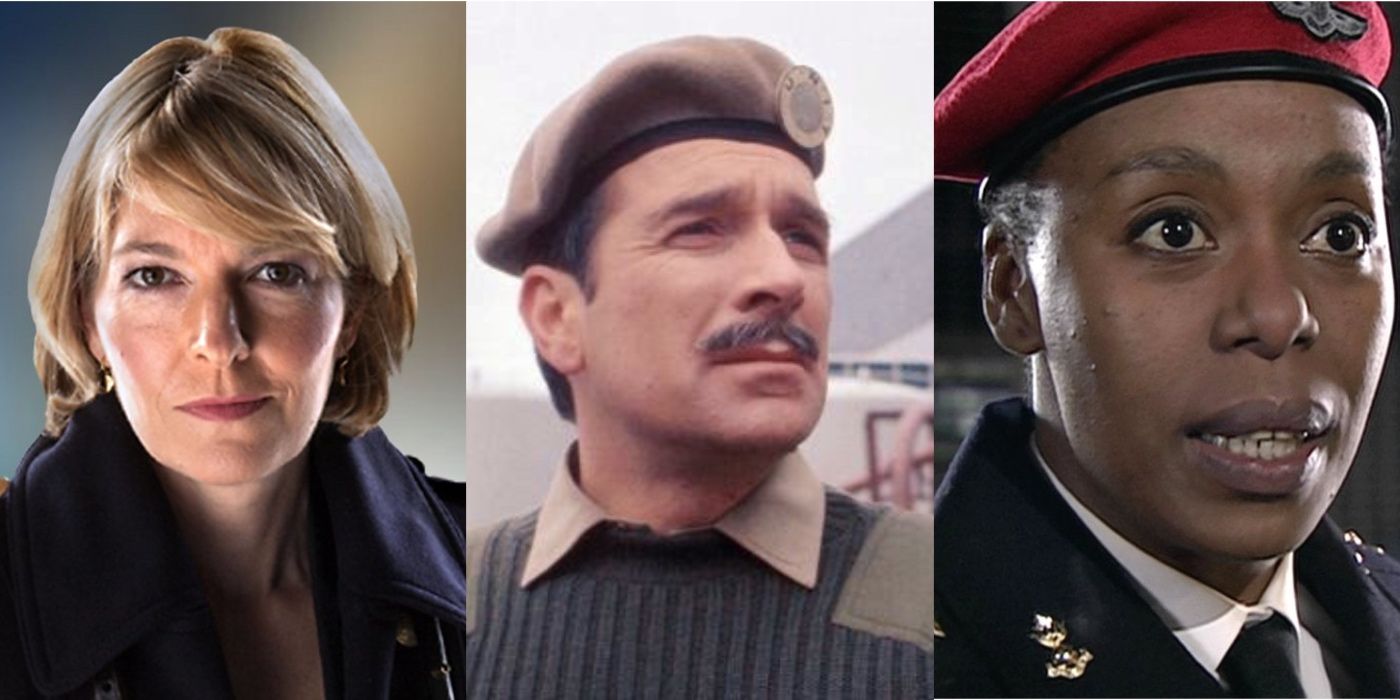
Doctor Who's 10 Strongest UNIT Leaders, Ranked
Doctor Who's titular Time Lord made many allies throughout their travels, including UNIT. Starting with the Brigadier, here are UNIT's best leaders.The Fourth Doctor investigates a mysterious seed pod in the Antarctic in "The Seeds of Doom." Still working for UNIT, the Doctor and Sarah Jane travel to the coldest continent on Earth to stop Harrison Chase's accomplices from acquiring the potentially dangerous seed pod.
"The Seeds of Doom" marks UNIT's last major appearance until the Seventh Doctor story "Battlefield," thirteen seasons later. The six-part serial's action scenes were controversial after its original broadcast, with many praising their quick-paced writing and others complaining about their 'grotesque' imagery.
3 The Talons Of Wen-Chiang Contains Excellent Writing But Unfortunate Stereotypes
|
Episodes: |
6 |
|
Director: |
David Maloney |
|
Writer: |
Robert Holmes |
|
Producer: |
Philip Hinchcliffe |
After arriving in Victorian London with Leela, the Fourth Doctor must deal with Magnus Greel, a 51st-century war criminal operating under a godly disguise. The Doctor tries to solve a murder à la Sherlock Holmes and track down Magnus Greel before the criminal can find his own time machine and flee the scene.
"The Talons of Wen-Chiang" has been championed as one of Doctor Who's best serials for its exceptional writing and impressive performances. Despite its many positives, the serial is also guilty of yellowface and racist depictions of Chinese culture that unfortunately sour an otherwise great story.
2 City Of Death Features A Ridiculous Yet Fun Storyline
|
Episodes: |
4 |
|
Director: |
Michael Hayes |
|
Writer: |
David Fisher, Douglas Adams, Graham Williams |
|
Producer: |
Graham Williams |

10 Doctor Who Alien Planets Worth Revisiting
Doctor Who has introduced plenty of alien worlds over its 60-year history, but some definitely merit further exploration in Ncuti Gatwa's new era.While on a trip to Paris, the Fourth Doctor and Romana notice time seemingly fracturing around them. Their investigation takes them to a solitary alien named Scaroth, the last surviving member of the Jagaroth who is attempting to steal the Mona Lisa and use it to fund his experiments in time travel.
The four episodes of "City of Death" had an average viewing of fourteen million viewers upon the serial's first broadcast, the highest for a Fourth Doctor story. It was the first serial to be filmed on location outside the UK, with various scenes filmed in Paris, and was initially criticized, and later applauded, for its comedic tone.
1 Genesis Of The Daleks Introduces The Creator Of The Dalek
|
Episodes: |
6 |
|
Director: |
David Maloney |
|
Writer: |
Terry Nation |
|
Producer: |
Philip Hinchcliffe |
The Fourth Doctor and his companions are intercepted and forcefully transported a thousand years back in time, to the Daleks' homeworld of Skaro. The Doctor is then given a mission by the Time Lords—to stop the creation of the Daleks.
"Genesis of the Daleks" is as iconic as a Doctor Who story can get. The six-part serial is part of the show's twelfth season and marks the debut of Davros, the creator of the Daleks and one of the Doctor's most emblematic enemies. The story is famous for exploring the morality of time travel, represented in the Doctor's dilemma between allowing the timeline to remain and committing genocide by destroying all Daleks.

Doctor Who
The adventures in time and space of the alien adventurer known as the Doctor and his companions from planet Earth.
- Release Date
- March 26, 2005
- Cast
- Jodie Whittaker , Peter Capaldi , pearl mackie , Matt Smith , David Tennant , Christopher Eccleston , Sylvester McCoy , Tom Baker , Paul McGann , Peter Davison
- Main Genre
- Sci-Fi
- Creator
- Sydney Newman

